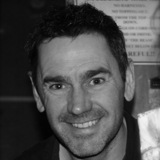 I was out cycling with a friend recently when he told me about the comments of an ex professional cyclist. When asked about how he enjoyed cycling after his retirement, his reply was, “it’s all about managing the decline.” We chatted about how difficult this must be, to reach the peak of a sport, and realise that your time is up and how to deal with that recognition. As I watched my friend disappear into the distance, I mused over my own peak—had I reached it yet?
I was out cycling with a friend recently when he told me about the comments of an ex professional cyclist. When asked about how he enjoyed cycling after his retirement, his reply was, “it’s all about managing the decline.” We chatted about how difficult this must be, to reach the peak of a sport, and realise that your time is up and how to deal with that recognition. As I watched my friend disappear into the distance, I mused over my own peak—had I reached it yet?
It was later in the day, on recovering my breath, that I began to draw an association with our role as primary care physicians and the “management of decline.” We see many patients every day, of all ages, some ill, and some not so ill. With the ever increasing age of the population, we are of course seeing larger numbers of patients who are past “their peak,” whose health is declining, and many of them also struggle to come to terms with this, and will frequently seek help in how to manage it. More specifically, it got me thinking about those patients whose health is deteriorating, for whom there is no prospect of improvement, and coming to the realisation that we perhaps should be focusing our efforts jointly with patients on “managing decline” rather than cure. One difficulty is accepting this, or understanding when that point is close to being reached, or has already been passed.
I am not talking about the patients on a clear cut pathway of treatment and transition into palliation. The oncologists and palliative care teams will be seeing a lot of these patients, and of course usually manage this transition well. I am talking about those suffering a gradual decline and being managed mainly in primary care—perhaps living with dementia, heart failure, or simply old age.
A few years ago I heard of a patient living with alcoholic liver disease. His GP advised him during a consultation—“look, we’ve discussed this before, if you don’t stop drinking then you are going to kill yourself.”
The patient paused before answering—“I know that doctor. You have told me before, but you didn’t tell me it would take this long.”
The penny dropped, the doctor realised at this point that the patient understood his predicament. He was not going to stop drinking—he wanted help and support in “managing his decline.” The relationship changed, the doctor stopped looking for a cure, and they worked together with a shared understanding of the management plan.
So what can we learn from this? As a doctor, I have learnt to keep listening, asking questions and to constantly revisit the management plan to ensure that wherever possible patients, carers, families, and doctors are all singing from the same hymn sheet. We perhaps should consider this more readily, even in those patients without an obvious “terminal illness,” helping patients accept illness and to manage their ill health. We should not be afraid or surprised at what patients might tell us. We should offer them opportunities to discuss their fears and expectations, encourage them, allow them to voice their darkest thoughts. Above all, support them in that difficult journey from health, through their peak, down the inevitable decline towards death.
Patients may have formed their own conclusions about their health well before we realise, and discovering this sooner rather than later will help them and doctors alike.
I declare that I have read and understood the BMJ group policy on declaration of interests and I have no relevant interests to declare.
Richard Cook is a GP in a large Sussex practice. He has worked there for the last 15 years.
